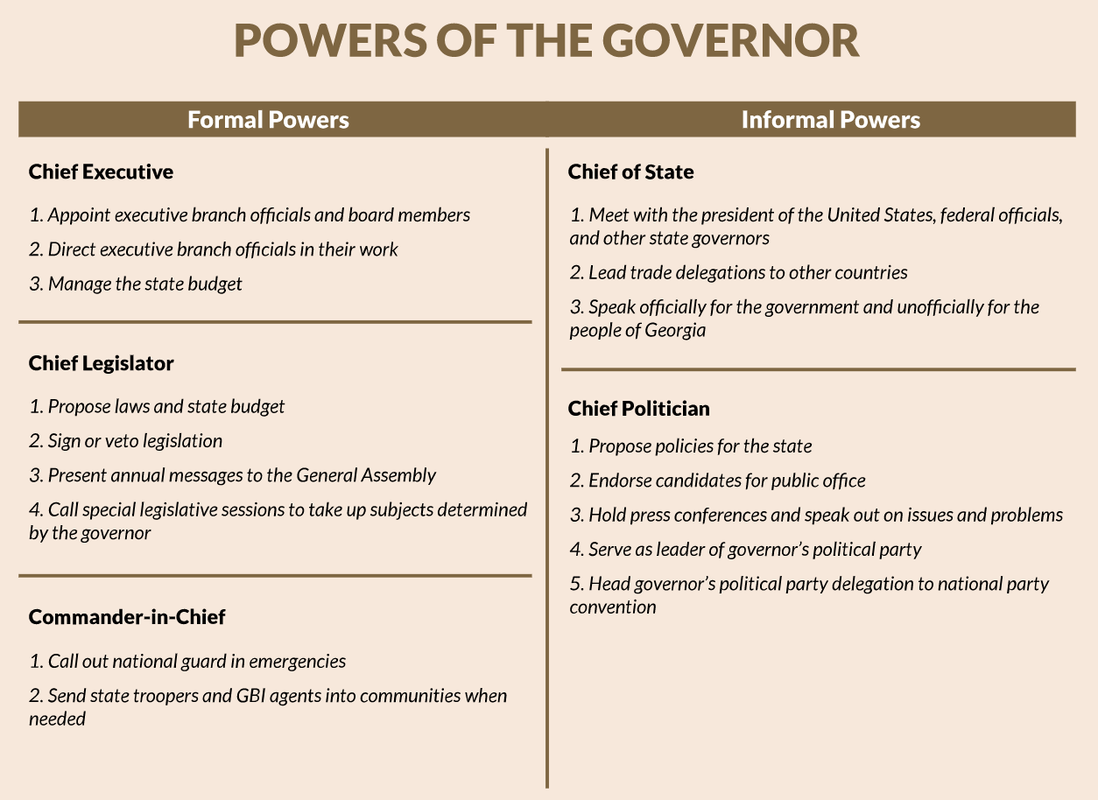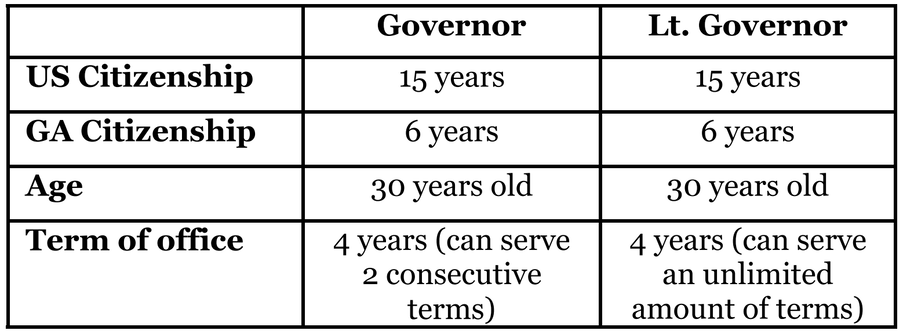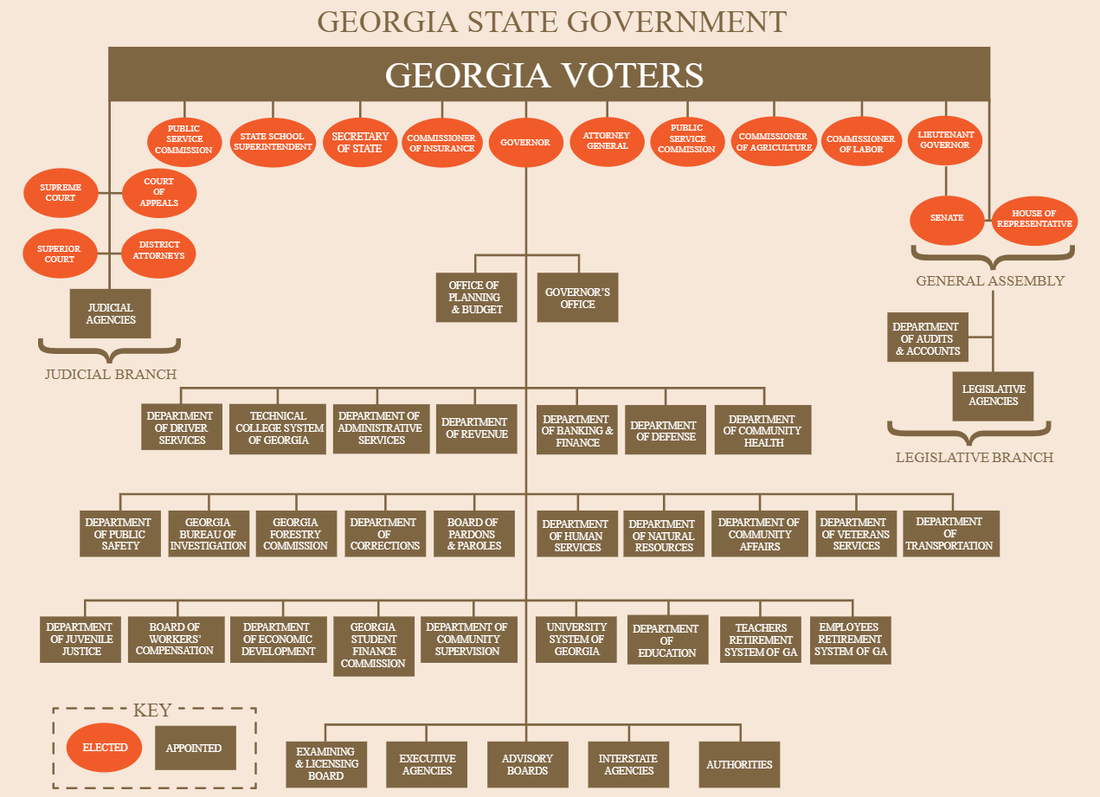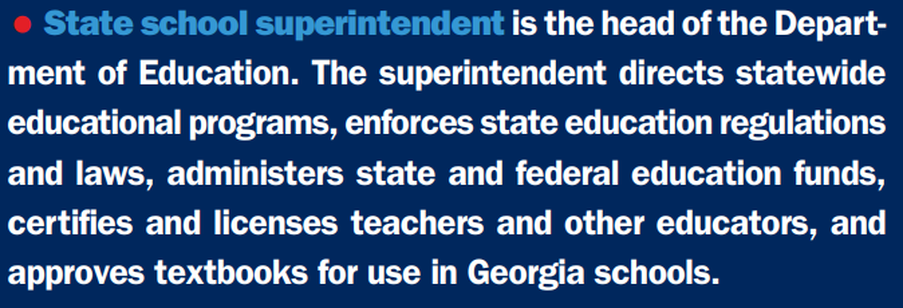Georgia's Executive Branch
SS8CG3- Analyze the role of the executive branch in Georgia state government.
A. Explain the qualifications for the governor and lieutenant governor and their role in the executive branch of state government.
B. Describe how the executive branch fulfills its role through state agencies that administer programs and enforce laws.
A. Explain the qualifications for the governor and lieutenant governor and their role in the executive branch of state government.
B. Describe how the executive branch fulfills its role through state agencies that administer programs and enforce laws.
The purpose of Georgia’s executive branch is to enforce and carry out the laws of the state. The governor enforces laws when he signs a bill into law, requiring all citizens to follow that law. The governor has formal and informal powers. Formal powers are stated in the Georgia Constitution and informal powers are traditional in nature. The Governor works with the Lt. Governor and Constitutional Officers and Executive Agencies to operate the State of Georgia.
The Governor is the chief executive of the state of Georgia. Like the President, he or she is limited to two four-year terms (see note below). Some of the Governor's most noteworthy duties include:
- serving as Chief Exective Officer
- serving as Commander-in-Chief
- ability to sign or veto legislation
- appoint vacancy replacements
- directs the state budget
- give the "State of the State" address
The Lieutenant Governor is similar to the Vice President. He or she is President of the Senate and becomes Governor if there is a vacancy in the Governor’s Office.
However, there are differences:
- serving as Chief Exective Officer
- serving as Commander-in-Chief
- ability to sign or veto legislation
- appoint vacancy replacements
- directs the state budget
- give the "State of the State" address
The Lieutenant Governor is similar to the Vice President. He or she is President of the Senate and becomes Governor if there is a vacancy in the Governor’s Office.
However, there are differences:
- The Governor does not choose a running mate. The Lieutenant Governor runs separately from the Governor and can be elected even if he or she is from a different political party.
- The Lieutenant Governor can serve multiple terms.
- The Governor can run for a third term if they sit out a term after their two consecutive terms in office.
The Governor appoints many agency heads (known as statutory officers), but some cabinet level officials are elected statewide. These Constitutional officers are elected to four-year terms. These offices include:
Statutory officers are officers not provided for in the state constitution, but their jobs are called for by state law. They are appointed by the governor or by the head or directing boards of the department in which they serve.
- Secretary of State
- Attorney General
- Labor Commissioner
- State School Superintendent
- Agriculture Commissioner
- Insurance and Safety Fire Commissioner
- Five members of the Public Service Commission are elected and are chosen at a district level.
Statutory officers are officers not provided for in the state constitution, but their jobs are called for by state law. They are appointed by the governor or by the head or directing boards of the department in which they serve.










